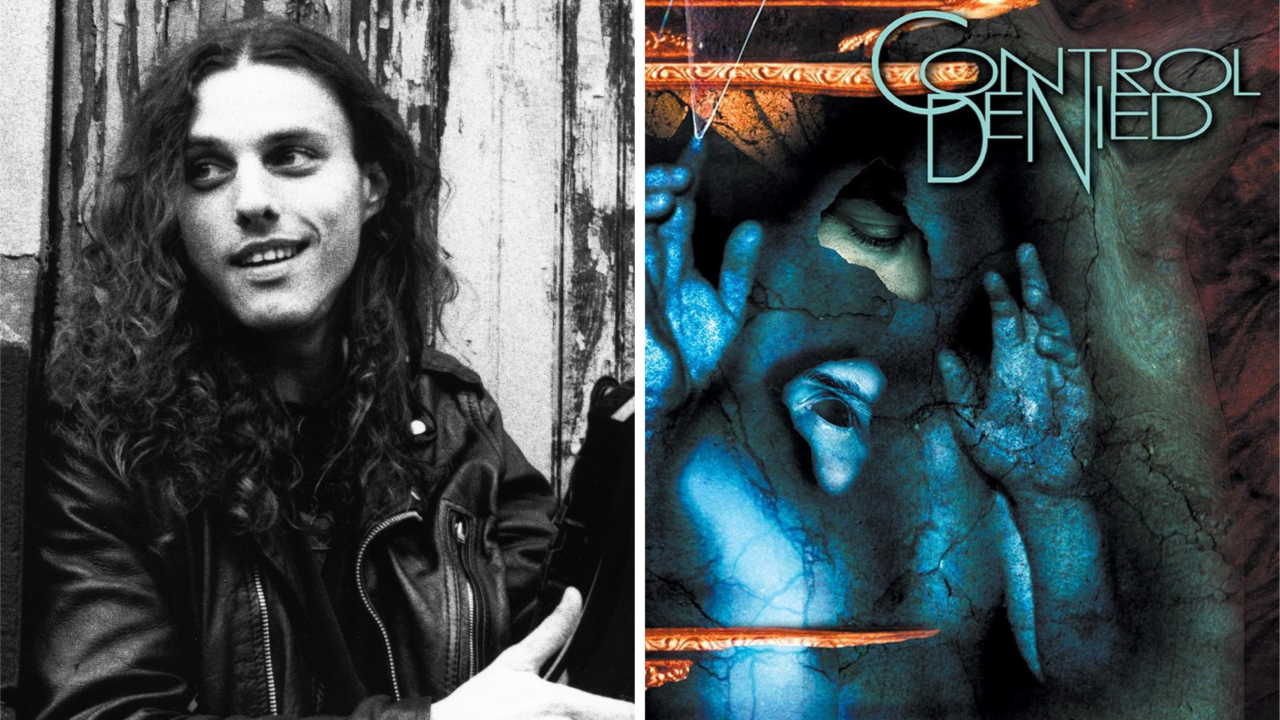
By the mid-’90s, Chuck Schuldiner had spent more than 10 years shaping the death metal genre into one of music’s most important underground movements. With Death, the ground-breakers that he founded in 1983, the singer/guitarist still had much to say – yet he was ready for a change.
Creatively, the allure of traditional metal was a powerful beacon. Schuldiner’s idea was to infuse old-school metal with the concussive force of death metal and the melodic possibilities of prog. That idea blossomed into Control Denied: Schuldiner’s far less abrasive side-project, whose single album, The Fragile Art Of Existence, remains as majestic now as it did when it was released 25 years ago.
Schudliner wanted to kickstart the side-hustle as far back as the early ’90s. In 1993, he told Guitar School, “I definitely have urges to get more experimental with my music, and if I ever feel that it’s just not suitable for Death, I’ll just use it for something else […] In the future I plan to do a more melodic, straight-forward heavy metal side-project, with a singer in the Rob Halford style.”
When Death finished their 1995 European tour, Schuldiner immediately set to work honing what Control Denied would become. He discussed the subject in multiple interviews, taking pains to clarify that despite incorporating more trad-metal elements, Death fans would find much to love.
Speaking to Chronicles Of Chaos in 1998, Schuldiner explained: “Control Denied is the extension of Death […] I have been very blessed by people embracing the music of Death, and when they hear Control Denied it will be exactly what they are embracing Death for, only more. It is that next, fifth element, which is the vocals, that are, honestly, holding this thing back inside of me.”
This was a time when metal was still reeling from the rise of grunge and the tempestuous response to Metallica’s Black Album. In short, it was a dicey time to celebrate the chest-beating glory of old-school metal.
Undaunted, Schuldiner assembled a rotating cast of musicians for the new material, with Control Denied’s eventual lineup congealing as Schuldiner, guitarist Shannon Hamm, bassist Steve Di Giorgio and drummer Richard Christy. By 1997, their debut was fully demoed, save for vocals – and Schuldiner, despite fronting Death for nearly 15 years at that point, wanted to outsource the task.
Reportedly, the shortlist for vocalists included then-former Judas Priest frontman Halford himself and the late Warrel Dane of Nevermore, who had opened for Death on the Symbolic tour. Ultimately, the gig went to power vocalist Tim Aymar, who told Metal Magdalene in 2011: “[Schuldiner] explained that he was looking for a singer who could sing with conviction like Dio and scream on pitch like Halford. That, I can do.”
With the final element in place, Control Denied finished the album in short order. The Fragile Art Of Existence came out in 1999 and, as promised, its eight anthems were more than a stylistic departure from Death’s signature sound; they revealed staggering new layers of Schuldiner’s versatility.
On bangers like the title track and Breaking The Broken, Aymar’s range and clarity offered a stark contrast to the guttural growls typically associated with Schuldiner. Sonically, the immensely talented band wove a tapestry of progressive arrangements, technical flair and rich emotional depth, which instantly set it apart from Death’s vicious extremity.
Tragically, Schuldiner’s journey with Control Denied was cut short. In spring ’99, he disclosed that he had begun radiation therapy for a rare form of brain cancer – the disease tragically took his life in 2001. Reportedly, the band had been working on a second Control Denied album, with the working title When Man And Machine Collide. While guitars and drums had already been completed, according to Hamm, the album would never reach completion.
After years of speculation that Control Denied’s second album would eventually be completed and released, Death and Schuldiner’s longtime manager, Eric Greif, removed any lingering debate. According to a Facebook post from Greif, “[T]he truth is that there ISN’T a completed WMAMC record. Too many years have gone by.”
Today, the importance of Control Denied, and specifically The Fragile Art Of Existence, extends beyond its immediate footprint. The project exemplified Schuldiner’s relentless pursuit of musical evolution, his willingness to challenge the conventions of the genre he helped to define. 25 years on, Control Denied remains a fiery testament to Schuldiner’s indomitable spirit and stands as a pivotal chapter in the legacy of a man whose influence is felt as strongly in death as it was in life.







